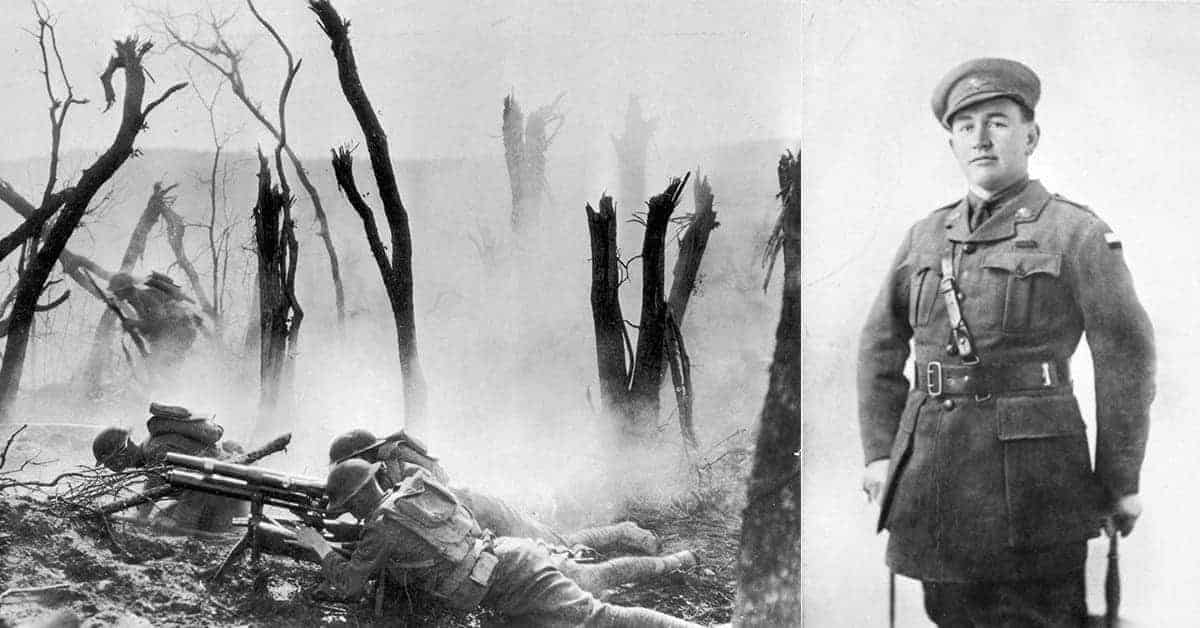Every war is full of stories. There are stories of suffering, tragedy, or even just simple twists of fate. Most of all, there are stories of heroism. The horrors of war provide a unique opportunity for feats of individual courage and sacrifice. And the first World War, as one of the most horrific conflicts in history, is no exception. But even among all the tales of courage in the history of WWI, the story of Lawrence “Fats” Dominic McCarthy stands out. Singlehandedly killing twenty Germans and capturing 500 meters of enemy trenches, Mccarthy performed what one historian called “perhaps the most effective feat of individual fighting in the history of the Australian Imperial Force.”
McCarthy was born in Western Australia sometime around 1892. Unfortunately, both of his parents died within a few years of his birth. McCarthy was brought up in foster care and Catholic schools until he was 13 when he left to work as a farmhand. At 16, he lost several fingers on his left hand in a sawmill accident, which just goes to show how hard his early life must have been. Later, McCarthy contributed this hard upbringing with helping him develop the type of character that would later serve him so well in war.
But while McCarthy was making a living in the rough and tumble territory of Western Australia, tensions were rising back in Europe. In 1914, the assassination of Arch Duke Franz Ferdinand by a Serbian nationalist provided the spark that set the entire world on fire. The complex system of pre-war alliances among the Great Powers soon pulled the United Kingdom into the war. Like many men in the British Commonwealth territories, McCarthy wanted to serve and tried to enlist in the Australian Imperial Force. However, due to his injured hand, he was quickly rejected on the grounds that he wouldn’t be able to shoot well enough.

Never one to give up easily, McCarthy returned a few days later with half a dozen trophies he had won in shooting competitions to prove that, even with seven fingers, he could still shoot better than most people. So in October of 1914, McCarthy was enlisted in the AIF and shipped off to Egypt to join the rest of the Australian and New Zealand forces where he was given the nickname “Fats” for his large frame. But little did Fats and the other ANZAC troops know that the operation they were about to take part in would prove to be the bloodiest Allied mistake of the War.
The Gallipoli Campaign was an operation planned by Winston Churchill, who served as the head of the Admiralty at the time. The goal was to force open the Bosphorus straits and seize Istanbul. If successful, the campaign would make it possible to get vital supplies to the Russian Empire and the shock of the blow might even force the ailing Ottoman Empire out of the war. But from the first start, the operation was a complete debacle. And as soon as McCarthy and the men of the AIF hit the beaches, they found themselves trapped in a desperate fight for survival.

